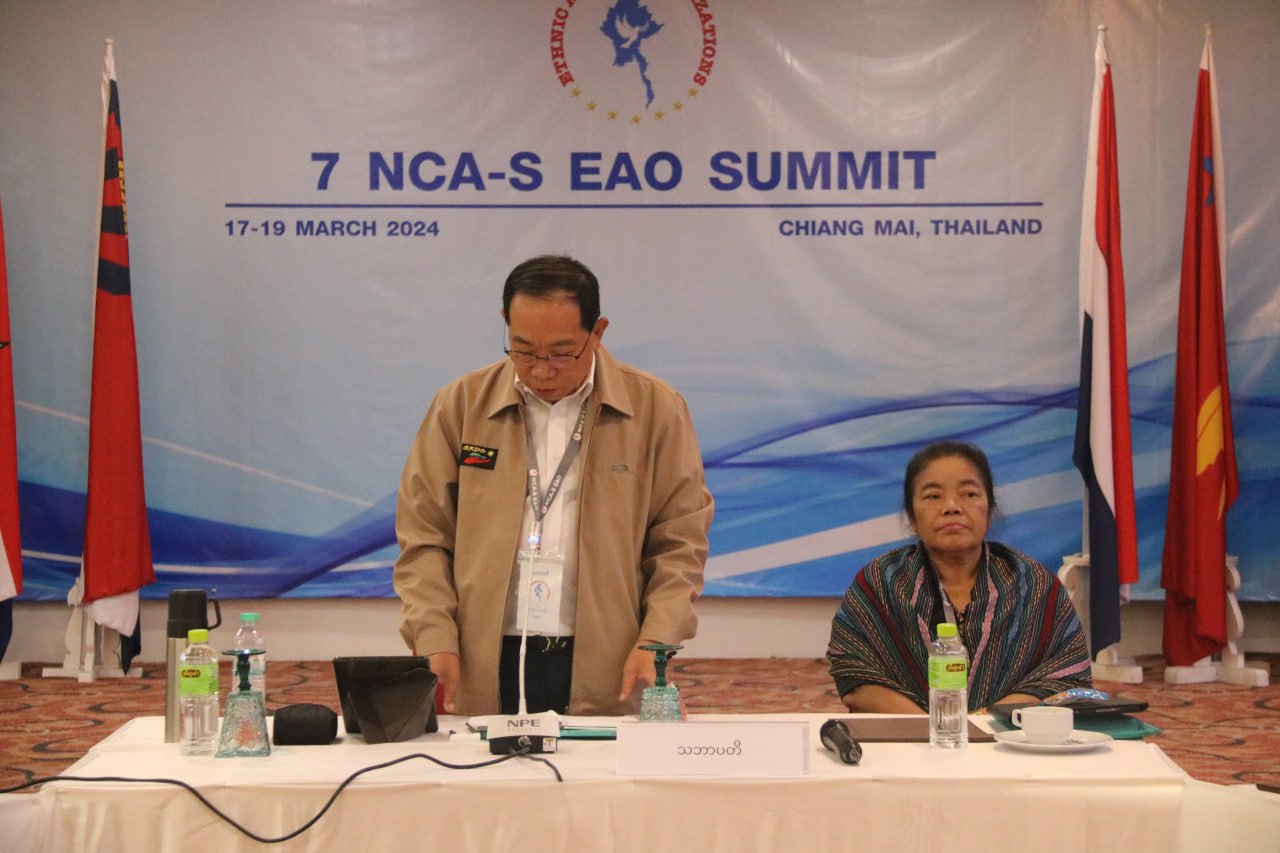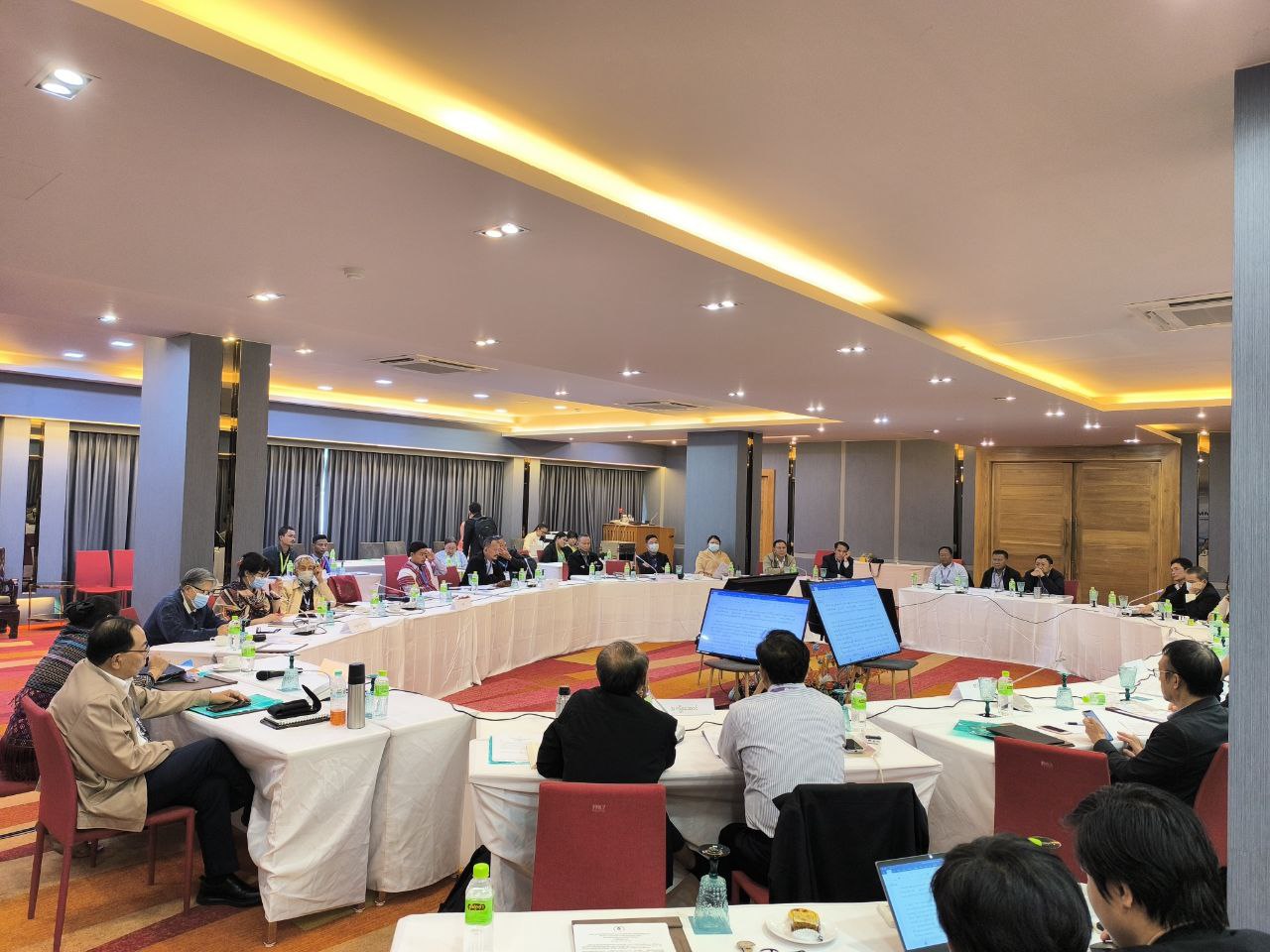Seven of the 10 ethnic armed organizations that signed the 2015 Nationwide Ceasefire Agreement have formed a new alliance to continue peace talks with the regime, following a meeting of representatives of the organizations in the Thai city of Chiang Mai on Sunday and Monday.
The newly formed alliance replaces the Peace Process Steering Team, but shares its goals of solving political problems through inclusive dialogue and protecting civilians affected by armed conflict, Colonel Saw Kyaw Nyunt, one of its two joint secretaries, told The Irrawaddy.
He represents a Karen group known as the Karen National Union/ Karen National Liberation Army Peace Council, or KPC.
Saw Kyaw Nyunt said the new alliance of ethnic groups was formed because the Peace Process Steering Team had run into “setbacks” that made it difficult to achieve the inclusive political dialogue the ethnic groups want. “So, we seven signatories [of the Nationwide Ceasefire Agreement] have formed a new group to work together toward our goal,” said Saw Kyaw Nyunt.
The Peace Process Steering Team was formed in 2017 by eight original signatories of the 2015 Nationwide Ceasefire Agreement to facilitate peace talks with the government of Myanmar and the country’s military.
Relations between its members, however, have been strained since the Feb. 1, 2021 coup because some groups want to fight the regime and others want to uphold the ceasefire agreement.
Representatives of the seven ethnic organizations that met on Sunday and Monday agreed to restructure the Peace Process Steering Team, which they renamed the Seven Ethnic Armed Organization Alliance.
Besides the Karen Peace Council, the other groups are: The Restoration Council of Shan State, the New Mon State Party, the Democratic Karen Benevolent Army, the Lahu Democratic Union, the Arakan Liberation Party and the Pa-O National Liberation Organization.

Mutu Say Poe, former chairman of Nationwide Ceasefire Agreement signatory the Karen National Union, also attended the meeting. The KPC is a splinter group of the Karen National Union and has no affiliation with it or its armed wing, the Karen National Liberation Army, despite using the names of both groups in its title.
Yawd Serk, chairman of the Restoration Council of Shan State, will chair the 7 EAO Alliance. Nai Aung Min, a representative of the New Mon State Party, will be its deputy chairman. Colonel Sai Ngin of the Restoration Council of Shan State will be the alliance’s general secretary and Colonel Saw Kyaw Nyunt of the KPC will be its joint general secretary.
Myo Win from the All Burma Students Democratic Front will be the alliance’s coordinator.
Myo Win is a former vice-chair of the student organization who was suspended by its central executive committee in October last year for attending the junta-led celebration of the 8th anniversary of the Nationwide Ceasefire Agreement.
The Pa-O National Liberation Organization was represented by its patron, Colonel Khun Okkar, and two members of its central executive committee. One of them was reportedly appointed to the secretariate of the newly formed alliance, but his name was not revealed.
Major General Khun Thurein, commander of the organization’s armed wing, the Pa-O National Liberation Army, told The Irrawaddy that his army had no involvement with the 7 EAO Alliance. “It is the decision of individuals [to join the alliance], and he does not represent the PNLO,” Khun Thurein said.

Three signatories of the Nationwide Ceasefire Agreement – the Karen National Union, the All Bruma Students Democratic Front and the Chin National Front – have been fighting the regime since the 2021 coup. Two other signatories of the Nationwide Ceasefire Agreement, the Pa-O National Liberation Organization and the New Mon State Party, initially sent representatives for peace talks with the regime after the coup but later took up arms against it.
The PNLO formally exited peace talks with the junta in January, after clashes erupted with junta troops in territory it administers, while some senior members of the New Mon State Party in February broke away from the party to join the armed revolution against the junta.
At the Chiang Mai meeting, General Yawd Serk proposed implementing self-administration in areas controlled by the seven ethnic armed groups, but his proposal was not taken up.

















